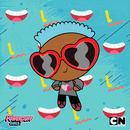I had the wonderful opportunity to interview 2017 RSU President Susanne Nyaga this past week and it was an experience I will not forget. It was an honour to say the least.
What started your passion for politics and made you run in the RSU election?
I never really had a passion for politics or saw myself getting involved within it. However, the more I learned about the RSU the more I saw it’s potential for greatness. I saw it’s potential to truly unite Ryerson students and felt as if that potential wasn’t being maximized. So a group of myself and some other students on campus got together and decided to run so we could make some changes. I may have never been passionate about politics but I have always been passionate about making positive and progressive change.
I saw in an interview you did with the Eyeopener that you are an advocate for mental health help. Why is this so important to you even now?
To put it simply, students are stressed. Students need the supports on campus to navigate their mental health. They need support to identify their stress and cope with it. The current resources available on campus are lacking and fail to adequately support students. Mental health is important to me because students who are struggling should not feel silenced, they should have spaces that acknowledge their experience and provide support. This needs to happen for all students especially students who have intersectional identities.
I understand that you are also involved in other campus activities? Are they also political or are they clubs and student groups? What are their platforms?
Yes I am. I am the Co-Chair of the Social Work Students’ Union, the President of United Black Students at Ryerson (UBSR), core organizer of the Ryerson Feminist Collective and Co-President of Ryerson Oxfam. You could say that some of them are political in their nature such as the Feminist Collective or UBSR, however, it is more about working towards creating an inclusive campus for all identities. UBSR focuses on creating educational and social events for Black students on campus. The feminist collective works towards addressing issues of misogyny and working from an intersectional framework. The Social Work Students’ Union works to address the needs of social work students and fill in any gaps within the program. Then Ryerson Oxfam is a campus chapter of Oxfam Canada that works towards raising awareness on global human rights issues.
As a woman of colour wandering campus as a student and a leader, what are the challenges you experience as well as the advantages?
As a Black woman I often experience silencing of my experience. I experience folks questioning the need for community only spaces or folks denying my lived experiences of anti-Black racism. Attending a post secondary school in a Black body brings another aspect of its own. I have the privilege of being in the Social Work program where we openly discuss race and microaggressions, and where I also have professors at the front of the classroom that look like me. However, even within that space I have still experienced anti-Black racism. It hard to particularly identify specific challenges and advantages because my ability to attend post secondary school is a privilege in and of itself. However, it is necessary to identify that anti-Black racism is real and present on campus, it affects all Black students and adds additional barriers to our experiences. At the same time there are spaces that have been carved out on campus to support the Black student experience and individuals who have taken on the work of combating anti-Black racism, such as the Black Liberation Collective.
Last words for our readers?
At the end of the say I hope students realize that the students’ union is their space. The executives welcome students to come in and ask questions about what services we provide and how we benefit their experiences. The work that we do should be reflective of the needs presented to us by students. Accountability and transparency need to be at the forefront of all of the work coming out of the union. Therefore as a student, if you have any questions or concerns or just want to know more don’t hesitate to ask.
If you would like to reach Susanne at any point her Ryerson e-mail is snyaga@ryerson.ca. Feel free to say hi to her in the halls she is very open to chat with new friends.


